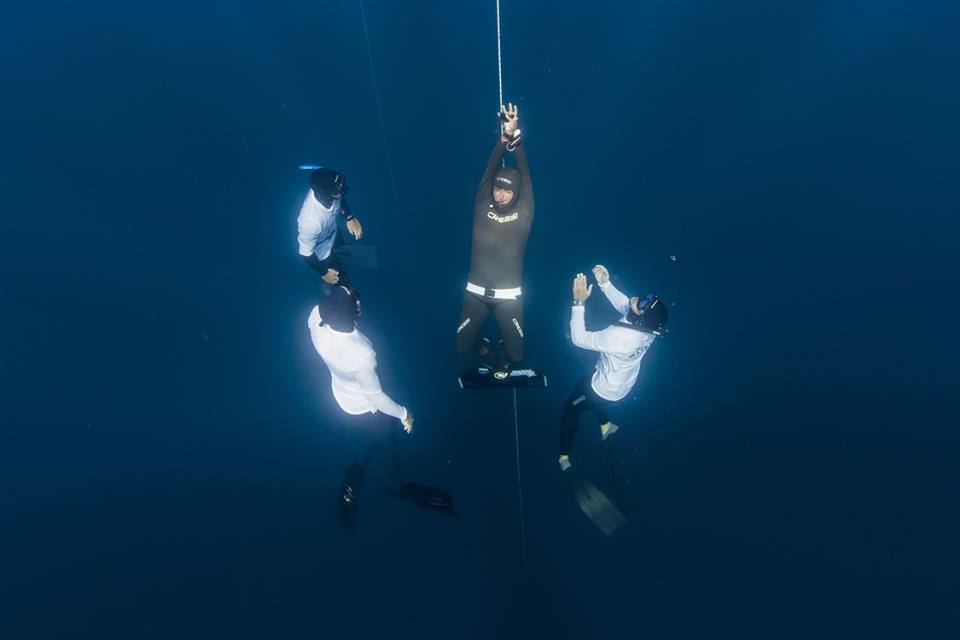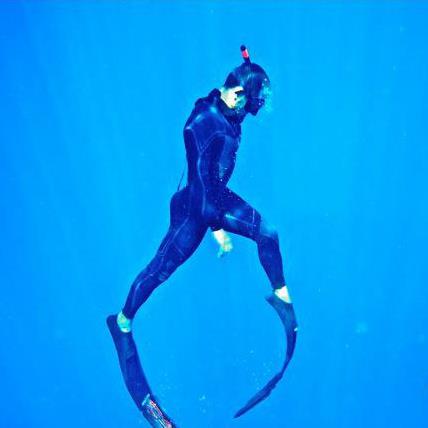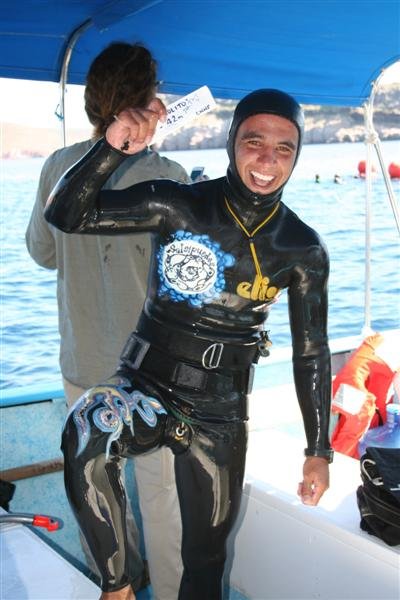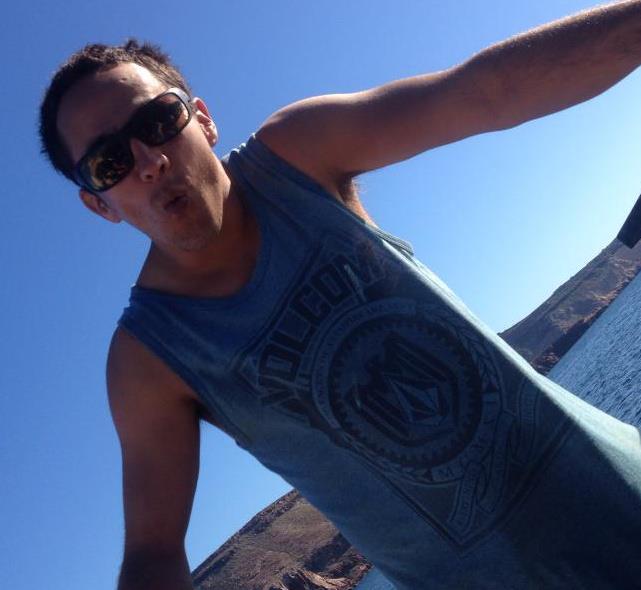For those who love the water and enjoy scuba diving or snorkeling, freediving is a natural transition. Though scuba divers and snorkelers usually dive to observe aquatic life and calmly enjoy the aquatic environment.
Freedivers, on the other hand, typically attempt to achieve a depth or dive time. (of course, freedivers also enjoy the beauty of the underwater environment), but the main goal is to challenge oneself and push one’s limits.
What is freediving?
Freediving is an underwater activity in which divers use a single breath of air to explore the underwater world. Unlike scuba diving, freediving does not involve compressed air tanks or complicated gear such as regulators and buoyancy compensators (BCs). Instead, most freedivers use only a mask, fins, and a wetsuit. Some don’t use any gear at all! Although they dive with only one lungful of air, experienced freedivers can stay underwater for many minutes and descend to surprising depths!
There are different types of freediving that have different goals. Some freediving disciplines challenge a diver to maximize his dive time, while others push him to maximize his swimming distance or depth.
By learning to freedive it allows a scuba diver to discover new sensations underwater, and may help scuba divers to improve their underwater skills. In many ways, freediving is more challenging than typical recreational diving. Skills can always be improved and personal records can always be broken. Perhaps that is why freediving is so addicting!
j
h
Scuba diving vs. Free diving
Freedivers dont need not worry about lung over expansion. Because the air a freediver inhales does compress during descent and expand during ascent, the volume of air in a freediver’s lungs is never greater than it was on the surface because he does not inhale additional air underwater.
Similarly, a freediver’s body does not absorb nitrogenunderwater (there is no additional nitrogen to absorb) so freedivers do not have to concern themselves with maintaining a safe ascent rate, exceeding no-decompression limits, or making safety stops. Freedivers may ascend and descend as quickly as they please!
Freediving is not as dependent upon equipment as scuba diving. Mostfreedivers use some gear, including fins, a mask, and a snorkel (if the water is cold they may use a wetsuit and a weight belt). However, none of this equipment is mandatory. Using less equipment allows a freediver to have a more personal experience with the underwater world.
j
n Manuel Gonzales
Finally, the advanced relaxation techniques that freedivers use to extend their dives can be useful in scuba diving. For example, pre-dive freediving respiration techniques can be a great tool for scuba divers who want to calm themselves before a dive. Learning freediving respiration techniques may actually help a scuba diver to reduce his air consumption rate!
Meet Manuel Gonzales
Manuel Gonzales an elite free diving instructor in Baja California, Mexico. He also has a background degree in marine biology and his expertise in marine conservation issues and environmental monitoring offer an outstanding insight into the ocean realm.
If you volunteer at the Whale shark Research project he will gladly introduce you to the basics and theory of freediving and show you tecniqes how to prepare for a breatold.If you get hooked, which you will prolly will you can contine with more advanced courses.
————————————————————————————————————————————————————————————————————————–
There are 4 different courses depending on your freediving skills.
1 Star Freediver – Discover Freediving
Here, you will learn in a one day course, the basic theory of freediving and how to prepare yourself for a breathold dive including, duck dive, finning, equalization, buddying and safety techniques. This course doesn’t focus on depth, but in how to relax under water. (Maximum depth: 10 meters, 30 feet).
2 Star Freediver – Open Water freediver
This is probably the most challenging and rewarding course. For those who are already confident in the open water this course is your starting point. The course builds a foundation of good technique and safety so that you can buddy with other 2 star freedivers. This course consists of two theory sessions, a pool session and two open water dives.
To successfully complete the 2 star freediver course you will have to perform a 2 minute breathold, swim 40 m underwater with fins and dive to 20 meters (60 feet) in the open water.
3 Star Freediver – Intermediate freediver
Interested in going deeper and improving your technique? This course goes into the theory of Freediving in more depth which will allow you to understand the physiology and techniques behind diving deeper. The course will help you improve your Freediving performance whilst advancing your safety and rescue skills.This course consists of three theory sessions, two pool sessions and four open water dives.
To successfully complete the 3 star freediver course you will have to perform a 2 minute 45 second breathold, swim 55 m underwater with fins and dive to 24 meters in the open water.
4 Star Freediver – Advanced Freediver
This course takes you to a whole new level of confidence in your Freediving. Not only will you learn the latest techniques for deeper diving but you will also learn more about conditioning your body for Freediving. This course will push you to the limits of your Freediving abilities. The 4 star is the highest level a recreational freediver can achieve. The 4 star can be combined with the Competition Freediver course for those who want to explore the challenge of competitive freediving.
This course consists of three theory sessions, two pool sessions and four open water dives.
To successfully complete the 4 star freediver course you will have to perform a 3 minute 30 second breathold, swim 70 m underwater with fins and dive to 32 meters in the open water
————————————————————————————————————————————————————————————————————————–
Manuel have trained many students divers. He loves teaching, and being able to share his passion with others. ” Those people who have never dived before who come to me to discover diving, normally have very low expectaions about free diving”, but after they done a test dive and they starting to take a course. It changes the lives for many people . ”When I start seeing the joy in their eyes how they are passionate about the same thing as me or that energy after they accived a big challange, that transmit me to know that they are happy! Thats why I love to teach, to inspire them and pushing them harder”.
“Free diving is for everyone, and to many its a big challange! It doesn’t matter what your background is in diving in free diving will open your mind to a whole new underwater experience!”




